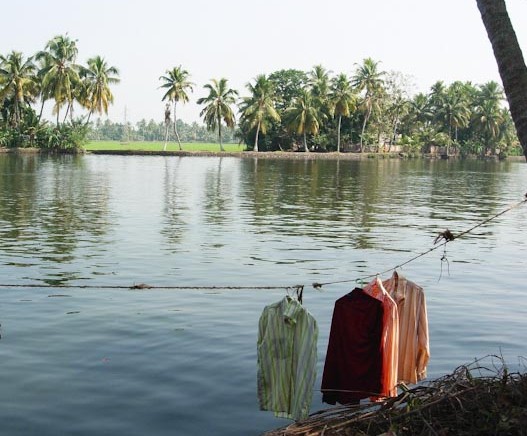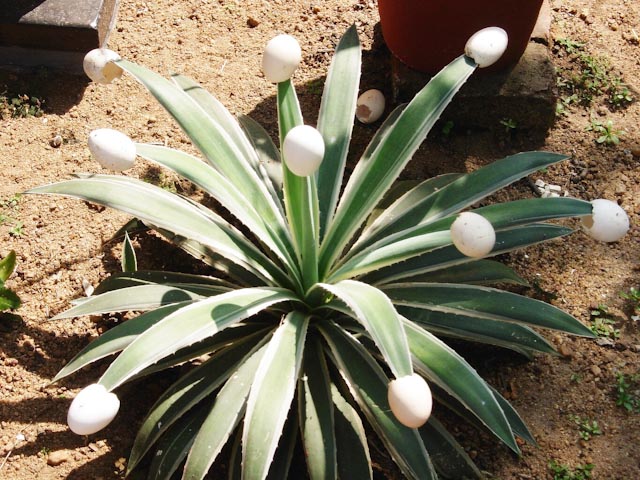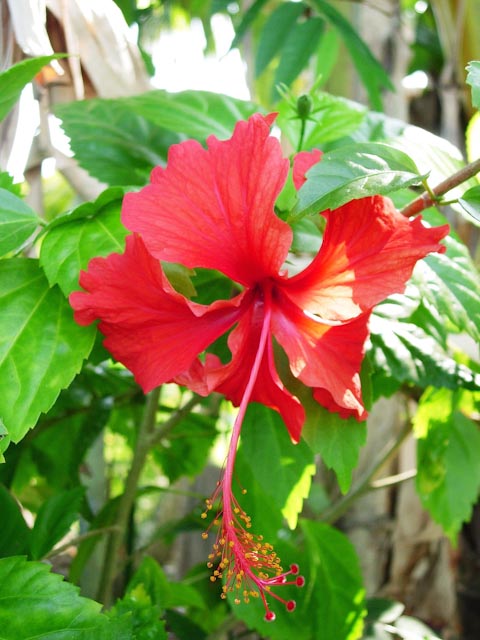On the night before our departure from Kochi we were taken to see a traditional Kathakali performance. I say traditional, but really it was observing the bright face paint being put on by the players and having the symbolism of the gestures and hand language outlined with some performed examples. A proper performance would probably go all night and have many intricate subplots and diversions, but our performance lasted just over an hour for us tourists with short attention spans. This was probably enough for initiates who cannot decipher the complex code of communication going on and was enough for us to appreciate the amazing layered skirts, jewellery and the colourful headgear and the rest. It was also a very warm night, so we were full of admiration for these artists layering on precise lines and colours of coconut oil based makeup and the heavy clothing on top.
The next day, day two of our tour, we catch taxis to the bus station. We pile into a bus with Raj Public and find seats wherever we can. A man gets on the bus and stands at the front holding up green and white packets, presumably trying to sell something, but managing to look like the announcer of in-flight instructions. He talks loudly to us all, but in the absence of our tour leader Anubhav, who has left to have a cigarette, I translate for the group.
'Malayalamalayalamalayalam.' (These bags will be issued to you for the trip to Alleppey)
'Malayalamalayalamalayalam,' he holds the bag in front of his face (In case of stomach eruption please use bag like so).
'Malayalamalayalamalayalam,' he relaxes his arms and holds the bag down below waist level (In case of other-end eruption please use like so).
'Malayalamalayalamalayalam.' (In case of simultaneous eruptions we are being very sorry, one bag is being provided only. Please use exit at the back of the bus)
'Malayalamalayalam.' (Have a nice trip)
The 62km trip to Alleppey will take two hours and by the first pick-up point we are crammed in like sardines with elbows and bums everywhere they shouldn't be.
When the bus pulls up at Alleppey, Anubhav leaps off the bus with great alacrity and orders us off. The aisle is packed however, and extracting our bags from the back seat a near-Herculean task. Closest to the back, Diana and I start a human chain and pass the bags to the door.
We transfer from the bus to over the road where a middle-sized motorboat awaits us. We hand our bags downstairs and head upstairs to sit on plastic chairs arranged under a canopy.
Parked all down the river as far as we can see are old rice boats that have been converted into houseboats. We are not staying in one unfortunately; we are being divvied up amongst some families for a home stay, which we hope will also be a happy experience. Over the next hour we watch palm trees roll by and houseboats drift along as wide expanses of water come and go and we weave around these man-made islands. It has taken the Keralans hundreds of years to achieve this massive amount of land reclamation and the total now exceeds 650 square kilometres.
Staying on one of these houseboats, I decide, must be bliss-on-a-stick. For all their rustic appearance, they have their own generators, air conditioning and even satellite dishes. Nothing like getting away from it all.


The people who live out here get two rice crops a year instead of one, and they all own boats for getting around. There are school boats, mail boats and people who go from house to house selling groceries and other basic commodities. We see many Indian women whacking the bejesus out of their washing on the stones on the riverbank. A twist of the wrist and a loop around the head, then CRACK on the rock. Alleyoop-CRACK, alleyoop-CRACK. Man, you wouldn't want to be one of their children – their smacking muscles are no joke.
Six of us, Jane, Kay, Gaye, Liz, Diana and myself are allotted to Matthew and his family. It is 2pm and we are ready to tuck into the lunch his wife Simmy has prepared. Grated cabbage mixed with coconut (yummo), chicken, fish, Keralan fat rice, a liquidy samba and other mixed vegies. Dessert is fresh sliced pineapple. After lunch we head off for a bit of a reccie of the area. Simmy shows us around her garden for starters and we marvel at a very strange plant in her front garden patch. It looks like an aloe vera cactus plant, but has almost whole eggshells stuck on the end of each long pointy leaf. Simmy tells us shyly, 'Er, that is an egg plant the children have grown.' Boom boom.


At 4.30pm we cross the river in a canoe to be taken on a tour of the area by Thomas, head of one of the other families and the key organiser of these stays. We walk past the local Syrian Orthodox Church. The Catholic Church is just on the other side of a canal. Subsidence has been a problem in the past (the multi-century Syrian church had to be demolished and rebuilt because of it) but they have since figured out how to make floating concrete pylons that create more flexible structures.
From there we go out to the rice fields. All the land we see is bordered by neat stone walls and dykes that are for holding back the monsoon water levels as well as indicating farmers' land borders. Someone asks what the lovely pale purple flowers are in the water. Thomas rolls his eyes and laughs resignedly. 'This is the water hyacinth. It is what you call a pest. It is choking the water ways and killing off the fish.'
We observe raised islands of land amidst the rice paddies where people's houses are and we can hear the bark of dogs and the squabbling of chickens. For a few months of the year the rice fields are fallow and the farmers open the sluice gates and flood the fields. The people on these raised areas become true island dwellers and get around by boat for that period of time.
Later, when I am chatting with Thomas, he muses aloud, 'Sometimes I think I would like to use my saved money and buy a place here and get away from it all.'
'Gosh, Thomas, most of us would say you are living away from it all already.' But I know what he means. He is in the tourist belt and people must be passing by gawking all the time in the houseboats.
And it seems that some problems are the same the world over. 'I was very lucky to get a wife,' Thomas said. 'Women no longer wish to live on the land and they want to have more money and an easier life.' Thomas has two brothers, one is involved in tourism and the other, in keeping with the Keralan exodus of the educated, works in a bank in Manchester.
'I will probably be the last farmer in my family,' he says philosophically. 'I have only two daughters. This way of life is dying out.'
At the end of our walk, along with another Intrepid group that happens to be in the area, we arrive at a canal where we are all loaded into canoes that contain cane lounge chairs. Four of these barges fit for Cleopatra are soon being poled down the narrow waterway. When we achieve more open water the boats slide up next to each other and are roped together. Thomas, who is sitting at the head of one boat, suddenly breaks into song. After a four-line verse the poling/paddling boatmen behind surprise us by launching into a chorused response. They sing several of these call-and-response songs for us with Thomas explaining their meaning. One was a wife's lament that her husband couldn't give her family the traditional gifts because he was poor and he was promising her he would do his best for her and try and get some money. There were other songs of love and loss and the voice of the men carried eerily over the water as the sun set.
Tied together as one amorphous mass, we paddled through the dark past lit homes seeing into their bright and cheerful living rooms.
Soon we would be back in Matthew's own cheerful living room where his three children lay in wait to tease and trick us with the card tricks they have learned from successive guests. Simmy has prepared us a wonderful egg curry and as she carries it out to place it on the dining table Gaye announces, 'It's eggplant curry tonight!'

Comments
Total Comments : ( ) You have to register to post a comment.
RECENT COMMENTS